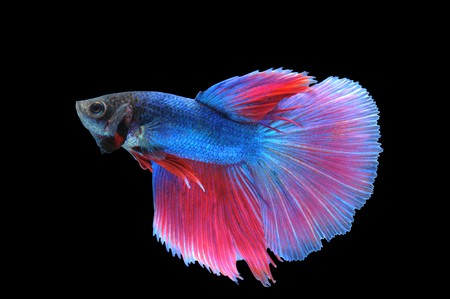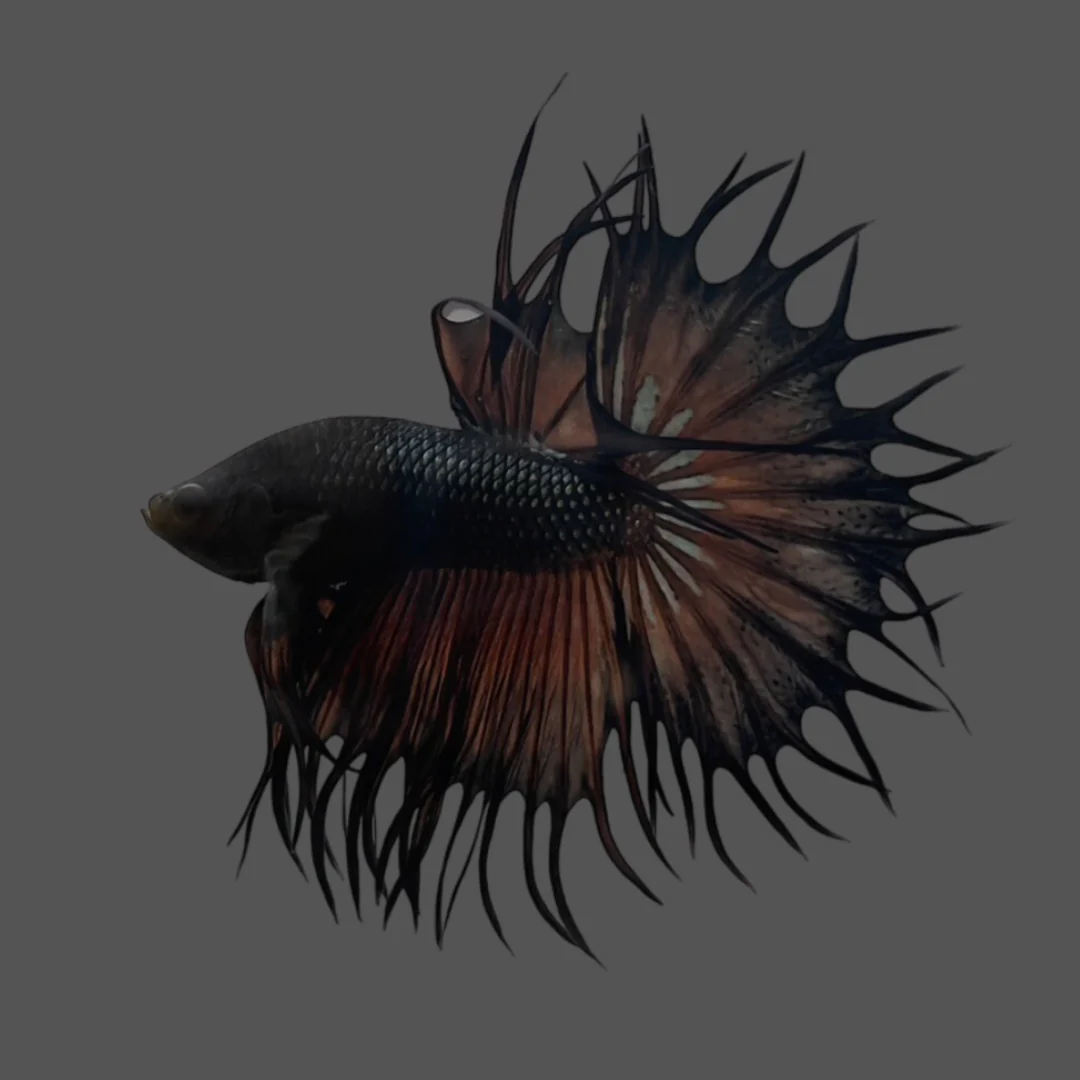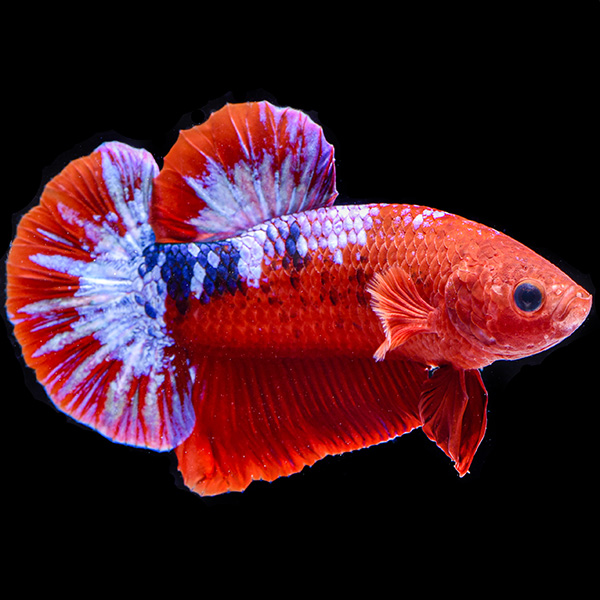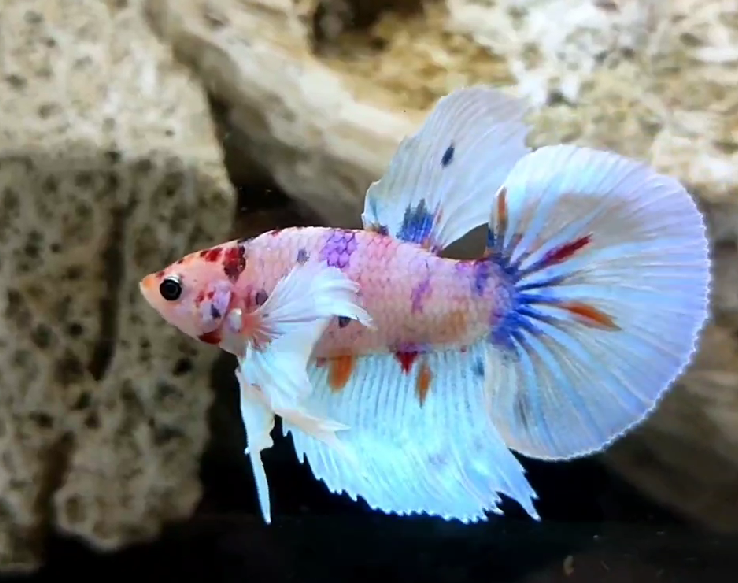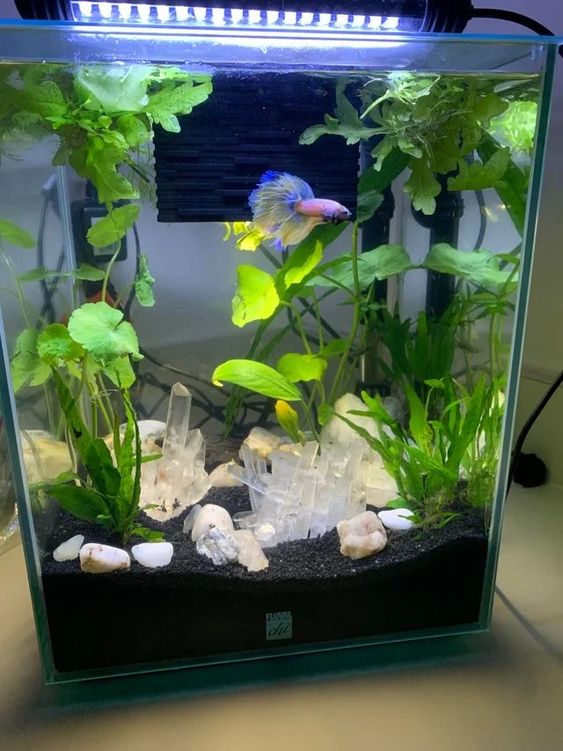Fin Types Of Betta Fish
Betta fish, with their vibrant colors and flowing fins, are a captivating addition to any aquarium. One of the most striking features of these aquatic gems is the variety of fin shapes and sizes. Let’s dive into the fascinating world of betta fish fins.
Understanding Betta Fin Types
Betta fish fin variations are primarily categorized based on the shape and length of their caudal (tail) fins. However, other fins like the dorsal (top), anal (bottom), and ventral (pelvic) fins also contribute to the overall appearance of the fish.
Here are some of the most popular betta fin types:
- Halfmoon: This is perhaps the most iconic betta fin shape. Characterized by a tail that spreads almost perfectly into a 180-degree arc, resembling a half-moon, Halfmoon bettas are prized for their elegance and symmetry.
- Delta Tail: As the name suggests, the Delta Tail betta's caudal fin forms a triangular or delta shape. It's a classic look that is both striking and graceful.
- Veil Tail: With long, flowing fins that resemble a veil, Veil Tail bettas are known for their gentle and ethereal appearance.
- Crowntail: This unique betta has a caudal fin that splits into multiple pointed rays, giving it a crown-like appearance. Crowntail bettas are often admired for their intricate and complex fin structure.
- Plakat: In contrast to the long-finned varieties, Plakat bettas have shorter, more compact fins. They are known for their sturdiness and often exhibit more active behavior compared to their long-finned counterparts.
- Rosetail: The Rosetail betta's caudal fin has a distinctive, ruffled appearance that resembles a rose. It's a beautiful and uncommon fin type.
Other Fin Considerations
While the caudal fin is often the focal point, other fins also contribute to a betta's overall beauty. The dorsal fin, located on the fish's back, can be long and flowing or short and compact. The anal fin, situated on the underside, and the ventral fins (pelvic fins) can also vary in shape and size, adding to the betta's unique look.
Caring for Betta Fins
Maintaining the health and beauty of your betta's fins requires proper care. Ensure your aquarium is clean and free of sharp objects that could damage the delicate fins. Regular water changes and providing a suitable water temperature are also crucial.
By understanding the different types of betta fish fins and providing optimal care, you can enjoy the breathtaking beauty of these aquatic gems to the fullest.

